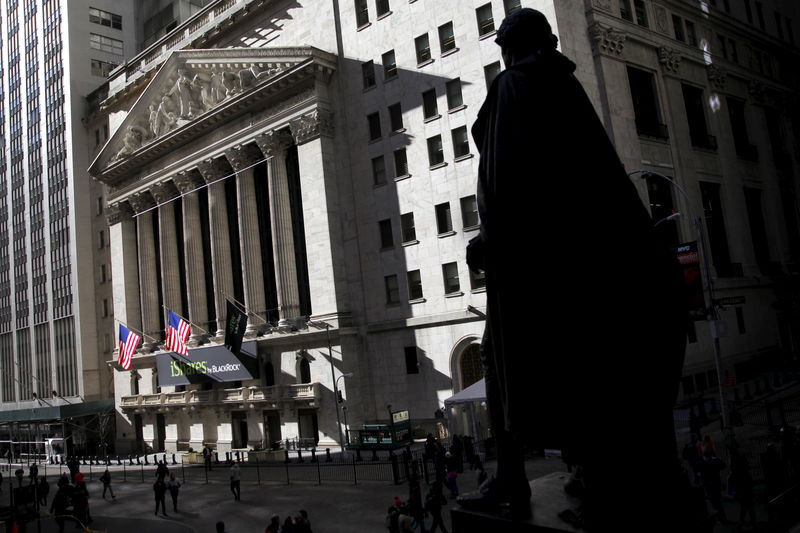By Geoffrey Smith
Investing.com -- U.S. stock markets opened lower on Wednesday after economic data regained center stage, reminding participants of pervasive inflation and a likely tightening of monetary policy in response.
The Commerce Department said retail sales rose by 3.8% in January, their strongest monthly gain since March, when households were still receiving large amounts of income support from the government. That figure was well ahead of expectations and confirmed the impression that households are having to spend more as inflation spreads across the U.S. The numbers made for an awkward prelude to the release of the minutes from the Federal Reserve's latest policy meeting, which are due at 2 PM ET.
By 9:50 AM ET (1450 GMT), the Dow Jones Industrial Average was down 123 points, or 0.4%, at 34,866 points. The S&P 500 was down 0.7% and the NASDAQ Composite was down 1.3%.
"The strength of this rebound adds credence to the idea that December sales were weak largely because people pulled holiday purchases forward, fearing shortages of popular items," said Ian Shepherdson, chief economist with Pantheon Macroeconomics. They then reverted to the mean in January. As a result, he argued, first-quarter GDP estimates are likely to be revised sharply higher, giving the Fed greater confidence that the economy can cope with a rapid tightening of policy to bring inflation back down. The picture of an economy taking the disruptions of the Omicron Covid-19 wave in its stride was further rounded out by figures showing industrial production rose 1.4% in January, well ahead of estimates.
Considerations as to what the numbers meant for the likely path of interest rates were obvious in the reactions to below-par reports from two long-duration technology names. Roblox (NYSE:RBLX) stock fell 24% while Shopify (NYSE:SHOP) stock fell 16.5% after both companies reporting slowing growth in the fourth quarter. Companies like Roblox and Shopify, whose valuations have depended on assumptions of easy money well into the future, are particularly sensitive to any suggestion of rising interest rates.
On a heavy day for earnings, medical technology company Masimo (NASDAQ:MASI) also fell 33% after it announced the acquisition of Sound United, a deal that was poorly received due to the perceived lack of overlap between the two businesses. Website design company Wix (NASDAQ:WIX) also fell 27% after a disappointing forecast for the current quarter, while ViacomCBS Inc (NASDAQ:VIAC) stock fell 20% after its earnings revived fears that its need to invest heavily in its streaming platform will be a drag on earnings for several quarters, if not years.
Stocks with better present cash flow performed markedly better in early trading. Shale oil and gas company Devon Energy (NYSE:DVN) rose 6.8% after it raised its dividend and increased its buyback, and chose not to increase capital spending and production this year. Kraft Heinz (NASDAQ:KHC) stock rose 4.1% after it too reported better-than-expected earnings, while Heineken (OTC:HEINY) ADRs rose 0.3% after the world's second-largest brewer said its strategy of premiumization had helped it to absorb higher input costs in the fourth quarter.
